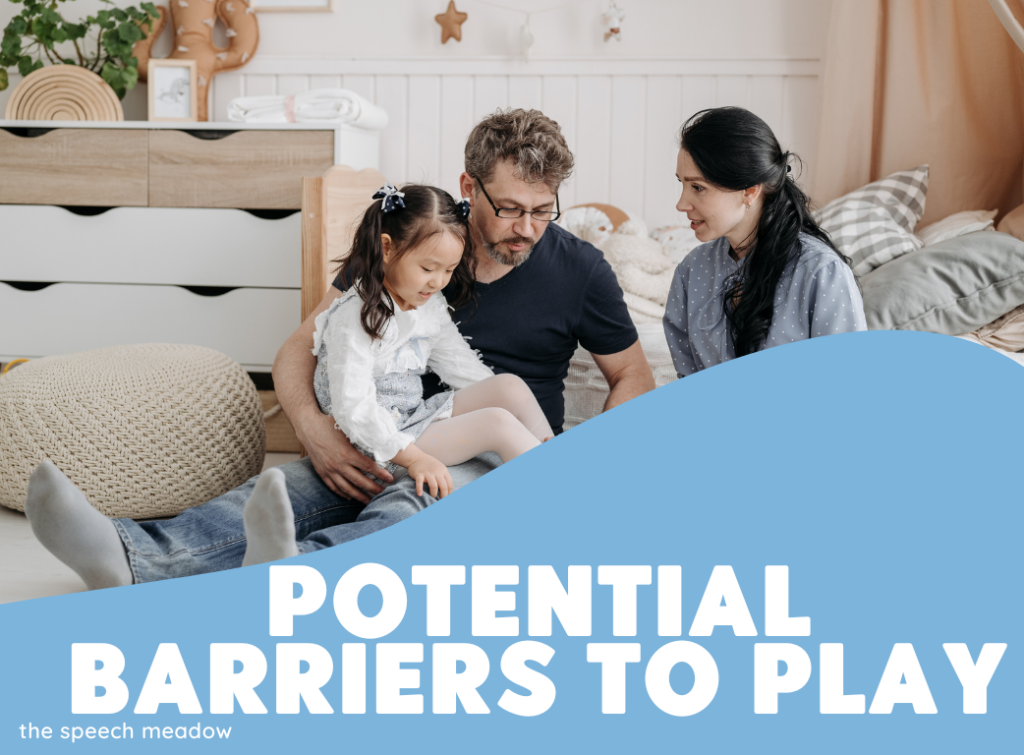First off, this is not a post to blame parents or therapists or educators. These are my thoughts and opinions on why some parents are reluctant to use play as a form of “homework” or as a form of therapy. They are based on conversations I have had with parents, speech-language pathologists (SLPs), occupational therapists (OTs), physiotherapists (physical therapists, PTs), and teachers. Here are what I think of as barriers to play for some parents.

1. Play is not seen as necessary.
Many parents see play as something that children do to keep themselves occupied. It is not seen as an essential aspect of child development. Many parents see doing flashcards, worksheets, iPads, etc. as doing meaningful work. Here is an earlier post on why SLPs play.
We, as therapists and educators, have not done an outstanding job talking about the benefits of play for children with delays or disorders and for children who are developing “normal.” I’m guilty of this. I believe that there needs to have a more targeted campaign that talks about the importance of play for a child’s overall development. By the way, I think that this would be a great research topic.
2. Cultural Differences
As SLPs, we need to keep in mind that we serve families from many different backgrounds and many different cultures. We need to keep in mind that these cultures may have different opinions on play than mainstream white culture in the US and Canada. We need to educate ourselves and respectfully work within or along with those cultures to provide therapy in what those cultures view as play.
3. Many Parents Don’t Know How to Play
This may seem like a weird statement after all parents are at one point were children and odds are they have played. Why wouldn’t they know how to play?!? Well, it’s not that simple. Again we need to keep in mind cultural differences, but even among the majority, culture parents struggle to play.
Play is a big concept, and it can be very intimidating. Where do they start? What toys should they use? How do they add language therapy into something that they may not feel comfortable doing? There are some excellent parent programs out there that use play in treatment, but even these programs can be overwhelming for parents. For a handout on play tips for parents, click here. And for blog posts on developing language through play, click here.
4. Children with language delays can be challenging to engage in play
Also, if parents feel comfortable playing may find it intimidating and challenging to play with children who have language delays or have a disorder. Let’s face it; it can be hard. I have worked with many children who were hard to engage with and to play. Again, if parents are not involved in a parent training program, therapists and educators need to think of ways to provide some more extensive training on play. We also need to cut some of our struggling parents a break and realize that they are doing the best they can.
Play is an important developmental skill that children need to learn. We need to look at the barriers that face some families face towards encouraging play and perhaps incorporating it into therapy.
What are your thoughts on the barriers parents face when being told to play?
